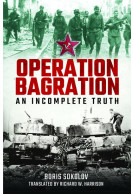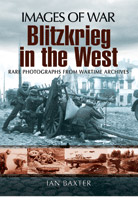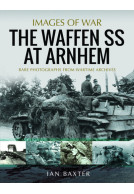Hitler's Fortresses in the East (Hardback)
The Sieges of Ternopol', Kovel', Poznan and Breslau, 1944–1945
Imprint: Pen & Sword Military
Pages: 224
Illustrations: 60 black and white illustrations
ISBN: 9781526783950
Published: 18th June 2021
(click here for international delivery rates)
Order within the next 9 hours, 23 minutes to get your order processed the next working day!
Need a currency converter? Check XE.com for live rates
| Other formats available - Buy the Hardback and get the eBook for £1.99! | Price |
|---|---|
| Hitler's Fortresses in the East ePub (4.4 MB) Add to Basket | £6.99 |
‘Fortresses must carry out the same tasks as the fortresses of old….They must allow themselves to be surrounded and thus tie down as many enemy forces as possible.’ So Hitler directed in March 1944 and, in so doing, sealed the fate of Ternopol', Kovel', Poznan and Breslau, cities in the Ukraine and Poland that were in the path of the Red Army’s advance towards Nazi Germany.
German forces, under orders to resist at all costs, adopted all-round defence and struggled to hold out while waiting for relief – which never came. In this gripping and original book, Alexey Isaev describes, in vivid detail, what happened next –intense and ruthless fighting, horrendous casualties among soldiers and civilians, the fabric of these historic cities torn apart.
His account is based on pioneering archival research which offers us an unrivalled insight into the tactics on both sides, the experience of the close-quarter fighting in the streets and houses, and the dreadful aftermath. At the same time he shows why these cities were chosen and how the wider war passed them by as the Wehrmacht retreated and the battlefront moved westward.
Each of these cities suffered a similar fate to Stalingrad but their story has never been told before in such graphic and circumstantial detail.
Featured on WW2 Today
WW2 Today
This is a well researched book, with good material from both sides. In general the work focuses on the higher and medium levels of command, and the tactics that were used by both sides.
History of War
Read the Full Review Here
As Featured In
WWII History, August 2022
For serious readers of military history in the English-speaking world, the telling of the story of the Great Patriotic War from a non-politicised Russian perspective is long overdue and books such as this will do much to fill this gap in the historiography. Recommended.
Phil Curme
Read the full review here
Featured in
Loopholes, Journal for the Pillbox Study Group - Number 81
By 1944, even the loyalist Nazis could see defeat as the most probable outcome, but fought on hard in the East to slow the Soviet advance. Excellent research, presentation and illustration of the final acts of WWII on the Eastern Front – Very Highly Recommended
Firetrench
Read the full review here
Alexey Isaev has produced an extremely informative work on a little known aspect of the war in the east. The detailed accounts of the ‘sieges’ and German attempts at relief shows an outstanding degree of painstaking research complimented by good editing and translation. This is a decidedly readable account of four cities that suffered a similar fate to Stalingrad and it is high time their story was told!
Martin Willoughby, Chairman of the Wessex Branch of the Western Front Association
It is unlikely that many historians or students of WWII will have heard of the German construction, on Hitler's orders, and defence of their fortresses in the Ukraine and Poland. Built to act as a defensive line to delay or thwart any Russian advance. They were constructed at major city road junctions to slow or stop any Russian advance which reminded this reviewer of the construction of Martello towers along the English coastline to deter Napoleon.
Dr Adrian Greaves, The Anglo-Zulu War Historical Society
Such was German confidence in the role of these defences in WWII that vast resources were expended by the Germans in their building and subsequent defence - all to no avail. The Russians smashed them then by-passed them. In the latter stages of the war, the might and determination of the Russian military crushed these defence proving that German belief, and that of Hitler himself, in castle-like defences could still be effective in modern warfare - they were not, especially by the end of the war. As ever in modern warfare, the cities supposedly to be protected by these fortresses were similarly destroyed or severely damaged as the Russians advanced, in part due to the proximity of such forts to the cities themselves.
The account has many new accompanying photographs which show the full extent of these fortresses, and of their destruction by the Russians. Countless soldiers on both sides died in the Russian attacks on these forts and retrospectively, they show the cost in lives on both sides caused by of one of Hitler's many illogical wartime constructions.
A very well researched book which, thankfully, has enough maps to guide the reader along the path of the Russian advance to the fortresses.
About Alexey Isaev
Alexey Isaev is one of the leading Russian military historians of the conflict on the Eastern Front during the Second World War. Several of his ground-breaking books have been translated into English including Barbarossa through Soviet Eyes: The First Twenty-Four Hours (with Artem Drabkin), The End of the Gallop: The Battle for Kharkov February-March 1943, Dubno 1941: The Greatest Tank Battle of the Second World War, Tomb of the Panzerwaffe: The Defeat of the Sixth SS Panzer Army in Hungary 1945 (with Maksim Kolomiets) and Stalingrad: City on Fire.
About Richard W Harrison
Richard Harrison is a writer, editor and translator specializing in Russian military history. He has also taught Russian history and military history at the college and university level. Among his publications are several translations of the studies compiled by the Soviet Army General Staff on Red Army operations during the Second World War.



















